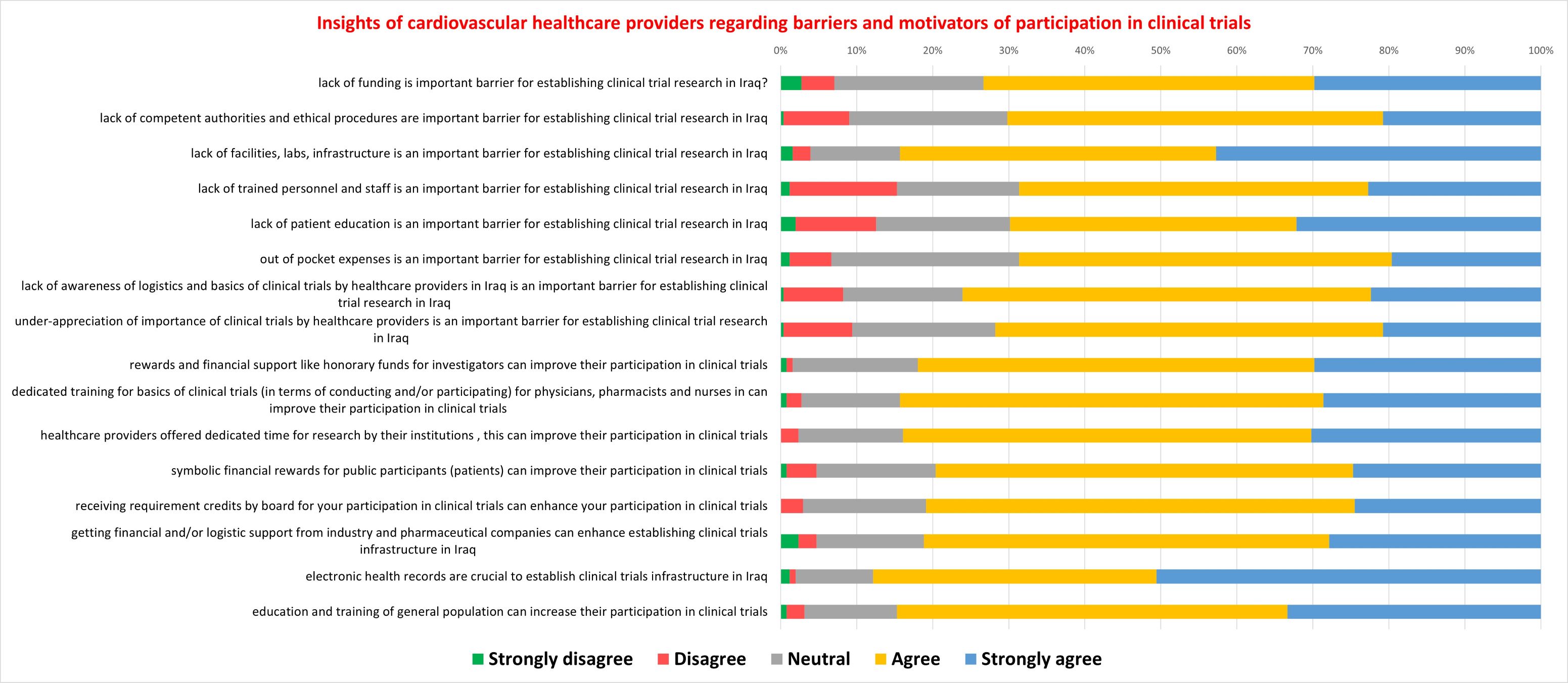Lots of interesting abstracts and cases were submitted for TCTAP 2023. Below are the accepted ones after a thorough review by our official reviewers. Don’t miss the opportunity to expand your knowledge and interact with authors as well as virtual participants by sharing your opinion in the comment section!
TCTAP A-085
Barriers and Motivators for Participation of Cardiovascular Healthcare Providers in Clinical Trials in Iraq: A Survey-Based Study
By Zainab Dakhil, Hasan Farhan, Michele Peters, Moatamn Reda Skuk, May Al-Jorani, José Leal
Presenter
Zainab Dakhil
Authors
Zainab Dakhil1, Hasan Farhan2, Michele Peters3, Moatamn Reda Skuk4, May Al-Jorani5, José Leal3
Affiliation
Ibn Al-Bitar Hospital, Iraq1, Iraqi Scientific Council of Cardiology, Iraq2, University of Oxford, United Kingdom3, Al-Kindy College, Iraq4, Al-Mustansiriya University, Iraq5
View Study Report
TCTAP A-085
Others (Unclassified)
Barriers and Motivators for Participation of Cardiovascular Healthcare Providers in Clinical Trials in Iraq: A Survey-Based Study
Zainab Dakhil1, Hasan Farhan2, Michele Peters3, Moatamn Reda Skuk4, May Al-Jorani5, José Leal3
Ibn Al-Bitar Hospital, Iraq1, Iraqi Scientific Council of Cardiology, Iraq2, University of Oxford, United Kingdom3, Al-Kindy College, Iraq4, Al-Mustansiriya University, Iraq5
Background
Patients from developing countries are under-represented in cardiovascular clinical trials (CT) which limits CT generalizability. We sought views of cardiovascular healthcare providers (CHCP) regarding CT in Iraq to understand how to pave the path to implementing a CT ecosystem in Iraq.
Methods
A 30-item online survey was sent via social media to CHCP in Iraq. The survey focused on evaluating barriers and motivators to initiate and/or participate in a CT.
Results
n=255, among whom 53.7% at age range 31-45 year, 20% were females. 44.7% were interventional cardiologists and 31% were cardiology trainees. 70.2% reported that they never participated in CT. Prior participation in CT was higher in CHCP at age 31-45 compared to other age groups (p=0.033), while prior participation was not affected by respondent gender, academic affiliation nor presence of institutional ethical committee, p>0.05. 95.7% think that Iraqi researchers should do CT in Iraq. 58.8% reported they will participate in CT if invited as co-investigators. Most common barriers for respondents' participation in CT are: lack of electronic health records [EHR] (52.2%), lack of dedicated time (51.4%), requiring additional follow up visits or investigations that may burden their practice (34.1%). While most common motivators are establishing EHR (86.27%), education and training of general population (84.7%) and receiving dedicated training for CT basics (84.31%).


Conclusion
Institutional and financial factors and lack of dedicated research time are related to the cardiovascular clinical trial lag in Iraq. Future qualitative research can help in getting a deeper understanding of what is needed to create the right infrastructure.


